Indian Military Moves Into Kashmir Region and Human Rights Move Out
Death and despair are visible in the artwork of Kashmiri children who have been exposed to violence in the region of Kashmir, now controlled by the Indian military.
These images indicate evidence of extreme trauma, according to the BBC.
“I cannot see the world again and cannot see my friends again. I am blind,” one of the children wrote in a crayon drawing.
“I cannot see anything in my life now… I was not knowing my future will be so dark, and it will effect my education,” another child wrote.
Their pages capture their ongoing experiences in Kashmir, where civilians have been living for months without access to medicine and food.
Some of these young people have fled from Indian soldiers wielding pellet guns; some of them have been shot; some of them have had friends who were shot according to The New York Times.
According to an article by CNN, they have lived without Internet access for months since the Indian army has blocked all communication to the outside world.
These children can no longer go outside to play cricket, the most popular sport in the region, as they have been homebound to ensure their safety.
They have been denied education, since schools were closed for months due to violence in the streets, according to The Guardian.
When some students returned to school, their artwork reflected the trauma that they had experienced.
“It’s unfair… The killings are unfair, the beatings are unfair, the torture is unfair,” said Irsa Irfan, a Pakistani student studying in London. “Everything happening to them is unfair. They just want a peaceful life of their own to live.”
These children no longer feel safe in their own houses.
“[These children reflected] anger, rage, and depression,” said Art Therapist Dena Lawrence according to India Today.
The Indian government under Prime Minister Narendra Modi issued a state of emergency on Aug. 4 claiming threat of terrorism.
Kashmir, called “Heaven on Earth” by Mughal Emperor Jahangir in the 17th century due to the natural beauty according to Economic Times India, is a small valley between India and Pakistan in the North now turned a repressive police state.
According to a timeline from BBC, Kashmir was a province that was disputed during the time of the India-Pakistan partition. The Muslim majority of Kashmir wanted to be a part of Pakistan, butthe Non-Muslim ruler during that time did not.
Article 370 of the Indian Constitution gave special rights to Kashmir as a disputed territory. However, there was a loophole in the article that could absolve the rights in case of a national emergency, according to BBC
India has removed the ruling that only Kashmiris can own property in Kashmir, allowing Hindus to take residence there, escalating the tensions through demographic changes.
There are now 600,000 Indian troops in Kashmir, and it is the most militarized region in the world, reports the Times UK.
According to CNN, Indian troops have used pellet guns against numerous protesting Kashmiris as well as innocent bystanders, resulting in serious wounds.
“By restricting journalists’ access to the outside world and harassing them on the streets, the Indian government is effectively stifling reports of unrest in Kashmir following its decision to revoke the region’s autonomy,” wrote Independent U.K about the violence towards journalists in Kashmir.
A strict curfew has also been instituted, and anyone who breaks it faces the violence of the Indian Army.
Furthermore, Kashmiri officials have been put under house arrest and the people of Kashmir are protesting in the streets.
There is a history of conflict between armed separatists and the Indian Army, but the Indian military has been killing civilians as well as armed separatists, and families report that the Indian army is refusing to issue death certificates or are not listing cause of death in order to downplay the number of civilians killed, according to The Independent.
“War is inevitable,” Irfan said. “It only makes sense because tensions between the countries are constantly escalating, and with the Indian government constantly denying their own bad deeds, the breaking point is near.”
The BJP
Indian nationalists have defended the actions of the BJP.
“The Kashmiri [people understand] that most of the separatist leaders have been using the so-called ‘Azadi movement’ for filling their coffers and settling their sons, daughters and relatives out of the state and country,” wrote a reporter for Indian Today Newspaper in defense of the Indian government’s actions; however, they stated no evidence.
Furthermore, Al Jazeera shows that all those arrested were people who protested the injustices against Kashmiris, not corrupt individuals.
Al Jazeera reports that the Indian government cites Pakistan-supported terrorists as a reason for militarization but has not presented evidence to support that claim.
The BJP has many supporters in and outside of India. BHS students are no exception.
“I like the BJP, I like all their programs,” said sophomore Vidula Jambunath, who is of Indian descent.
“I like how they’re trying to be more progressive, even though they’re a more conservative party, within the terms of what they’ve done so far,” Jambunath said. “I think it’s pretty great.”
According to LiveMint Newspaper, Indians also support the militarization of Kashmir due to the economic boom from the region’s bountiful resources.
In contrast, others oppose the party due to their past actions against Muslims and due to the fact that the articles that are revoked by the BJP government were designed to protect the rights of indiginious Kashmiris.
“It’s ridiculous that they’re even in power, considering how openly inhumane they’ve been to Muslims in Gujarat in the past, massacre and killing that reeks of genocide,” said Mariam Gardezi, a Pakistani senior at Case Western Reserve University majoring in International Relations.
The massacre in Gujarat started, according to BBC, after a train with Hindu Pilgrims was set on fire. The New York Times reported that it was caused by accident and not an act of terrorism or a hate crime.
However, Hindus in the region immediately blamed Muslims, leading to over 1,000 murders of local Muslims.
In Feb. 2002, a mob of Hindus hacked and burned 69 Muslims to death and also robbed and burned their property at Gulbarg Society Complex over the course of three days.
At that time, the state chief minister was the current Prime Minister, Narendra Modi. Modi never did anything to stop the riots and his advisers were found to have been involved in the riots. The attacks were in Feb. 2002.
No trials took place until seven years later.
“They’re Hindu nationalists and display hatred towards Muslims,” Gardezi added.
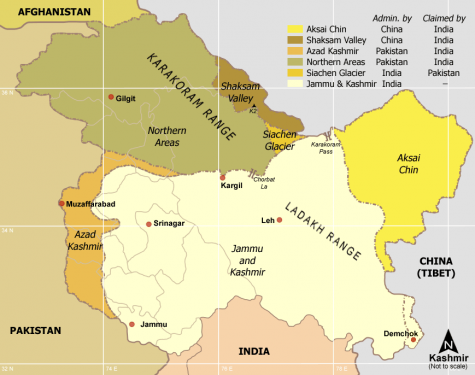
The History
In 1947, the Ruler of Kashmir, Hari Singh, also called the Maharaja, acceded Kashmir to India during the partition. However, since the Kashmiris’ viewpoint was not accounted for and it was not decided by the British Viceroy, who still had legal authority in the region, the Kashmiris and Pakistan don’t consider it a binding or legal decision.
Seeing the potential of the tensions building up, Britain and the U.N. decided in 1947 that Kashmir would remain a disputed territory to be resolved on the basis of where the majority of the civilians wish to go.
However, no action was taken by the international community despite the countless times Pakistan tries to bring the case to the U.N.’s attention.
Since then, two wars have been fought over Kashmir and Pakistan gained a part of the region, now called Azad, or Liberated Kashmir. Azad Kashmir has its own government while also enjoying all the rights of Pakistani citizens.
According to Pakistani Parliamentarian Seemi Bokhari, Pakistan will not declare total autonomy of Azad Kashmir until the rest of Kashmir is freed and can, as a whole, declare if it wants to be independent.
According to Washington Post, the rest of Kashmir was considered disputed territory, and since the matter of which country Kashmir would go to depends on demographics, only Kashmiris could own property until the Indian government overturned the policy this year.
Human Rights Violations
Amnesty International has reported the Indian Army’s involvement in disappearances, abuse and assault on Kashmiri Muslims.
According to Dawn newspaper, a Karachi newspaper, the Indian chapter of Amnesty is opposed to the actions of the Indian government towards Kashmir, specifically, the blackout of internet and other services.
Genocide Watch has put the region on high alert as of Aug. 15, and, the region has now advanced further than the 10th and final stage, meaning that all forewarnings of a potential genocide have been surpassed and if action is not taken, a genocide is likely to occur.
The Indian government has cut off wifi and communications in Kashmir, although some landlines are working, according to CNN.
The U.N. considers Internet access a human right.
The lack of internet is also a problem for hospitals since they are unable to order medicines to treat patients with problems like dialysis. One doctor was arrested, not because he was protesting, but because he asked for wifi access in order to request supply of medicines according to Telegraph news.
Impact
Kashmiris are separated from family and are cut off from Internet and other communication with the outside world.
“We still have family [there] but we’re both divided, kind of like how the Berlin Wall divided Berlin, so it’s been hard to not know how our family’s doing,” said Manal Qureshi, a Case Western Reserve University student, who has family in Kashmir.
“There’s no communication,” she added. “The New York Times has reported that hospitals don’t have medication, stores don’t have food.”
“It’s like ‘are they okay, are they not okay?’” Qureshi said. “It’s really difficult. There are people who passed away and their families who are overseas or outside the region don’t even know.”
“If I heard any noise, I would hide in the corner of my house” one child told the BBC, after hearing the Indian Army killed one of his friends during a protest.
CNN reports the Indian Army uses pellet guns on Kashmiri protesters, which caused severe damage to the eyes. Many have needed medical attention and even surgeries.
One man had to take his 8-year-old son to receive surgery for the young one’s eyes. However, the taxi ride there cost him Rs 4,000 ($56) in this current situation compared to the normal cost of Rs 200 ($2.8), which is taxing on the citizens of Kashmir.
Student Views
These tensions go further than South Asia. People in Beachwood are also divided on this issue. They do not agree on which country Kashmir should belong to.
“I do think it’s Indian land, so I do think it had to come back eventually, but I don’t justify the means of which it did,” Jambunath said.
Jambunath’s viewpoint is based on the 1947 accession.
Jambunath also said some of her ancestors had land there, so they deserve to get that land back, a point which causes many Indians to support the Modi government.
“[Some Indians believe] that Kashmir should be a part of India.” sophomore Shivani Rajgopal said. “Some other people may think it should not…they might have a bit more of a view that Kashmir should be independent,”
Even neighbours in other countries have varying views on this topic.
“My family members believe Kashmir should become an independent country because that seems to be the only solution,” said Laiba Sarfraz, a Pakistani activist on social media. “However, my neighbours think since Pakistan is helping Kashmir, it should be a part of Pakistan.”
However, people on both sides agree that what is happening in Kashmir is wrong and unjust.
“Because both my parents are Muslims, they both share the same sentiments over this issue…” said Heba Rehman, a medical student studying in Saudi Arabia, born to both Indian and Pakistani parents. “Regardless of background and religion, it is clear that what is taking place in Kashmir is outright wrong.”
The View From Pakistan
Seemi Bokhari, a member of the Pakistani Parliament explained why Pakistan is involved in the conflict.
“We want our Muslim brothers and sisters to be free of these atrocities,” she said. “Our Prime Minister [Imran Khan] said that if nobody wants to help Kashmir, [he] will.”
“We just want to follow the Kashmiris’ will,” Bokhari added. “When someone dies in Kashmir, most of the time they wrap them in Pakistani flag. Pakistan wants to help.”
Pakistan has also made continuous attempts to make peace with India. Recently, after capturing the pilot of an airplane that flew over the border threateningly, Pakistan returned the pilot to India as a gesture of peace, according to The Guardian.
Pakistan has also recently tried to involve the United Nations to intervene in Kashmir, however as of yet, the U.N. has made no move to help.
Potential for Resolution
The U.S. and U.N. can take measures to resolve the tensions by mediating between the two countries. However, no country has taken a stand on this issue.
“I do think it can be solved peacefully if other countries intervene because if they do not then two countries with nuclear powers would be at war, which would not only damage India and Pakistan, but also other countries,” Rahman said. “I doubt the U.N would solve anything as time and time again, the U.N has been unable to resolve conflicts in other countries like Sudan, for example.”
“The world doesn’t care,” Gardezi said. “Unless the sleeping world opens its eyes, there can’t be change.”
“Kashmiris need support which so far they aren’t getting,” Gardezi added. “Their stories aren’t even being heard. Nobody wants to hear about their suffering, so how will there be a resolution?”
Steps to Help
There are steps one can take to help the people in Kashmir, however.
“I think they should raise a little more awareness about the problem,” said freshman Samah Khan. “If you want to solve a problem, obviously you have to acknowledge it first.”
“You can protest, you can send funds through the Red Cross because no one can stop the Red Cross [at borders],” Bokhari said.
“Pakistan has stopped trade with India, but over in America… you could also boycott Indian products,” Bokhari said.
Furthermore, there is a petition on change.org trying to get the case to the U.N.’s attention as well as many rallies for the cause throughout America.
“Let our future be bright, make us educated, don’t make this crisis a reason for darkness,” wrote one child in Kashmir on her artwork.
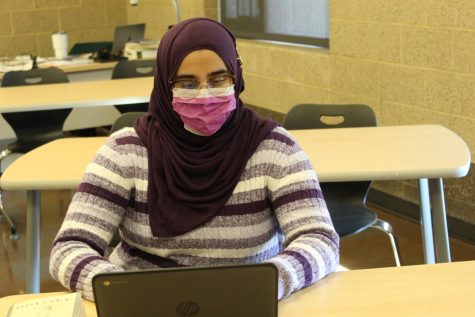
Hiba Z. Ali began writing for the Beachcomber in fall of 2019. She covers diversity in the school. In addition to writing for the Beachcomber, she also...



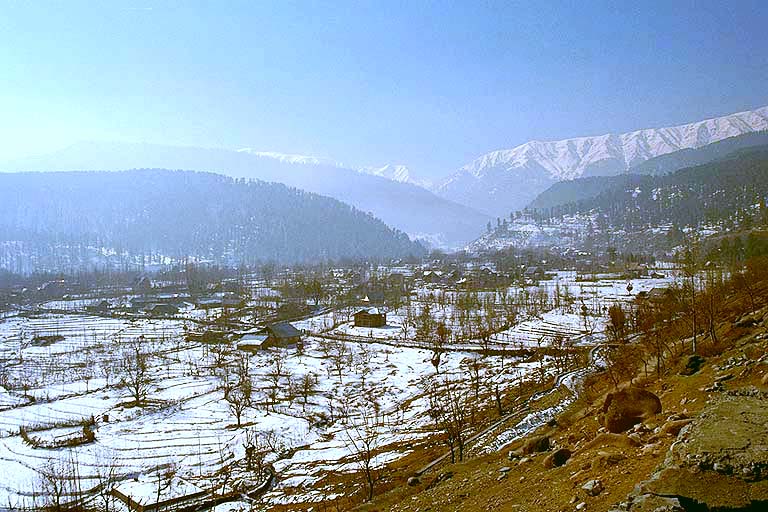
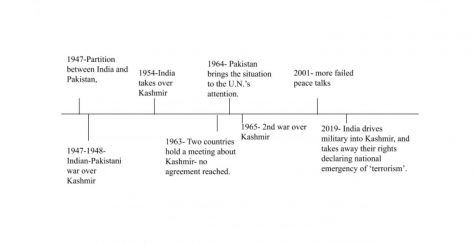
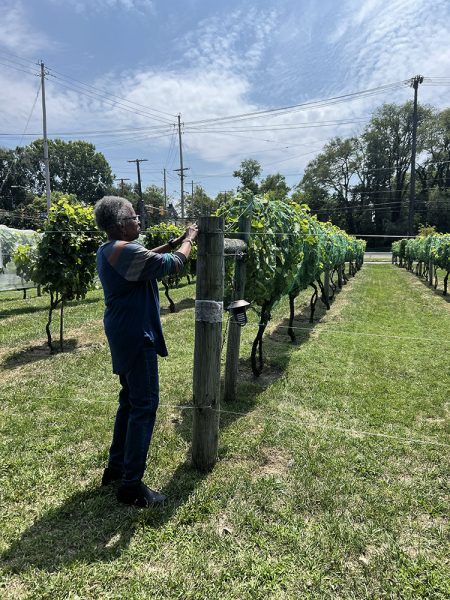
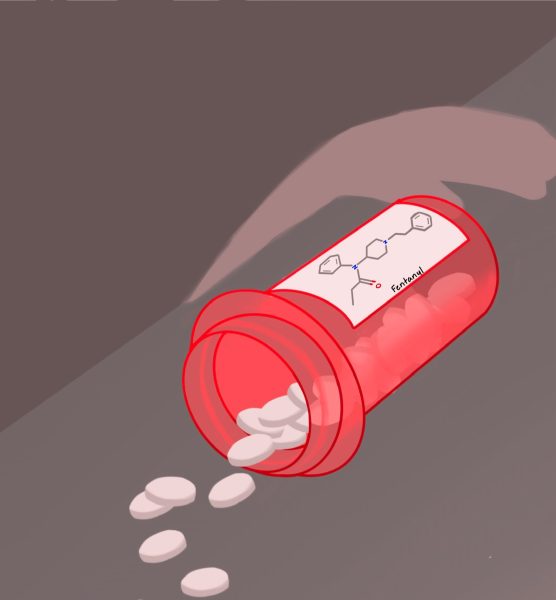


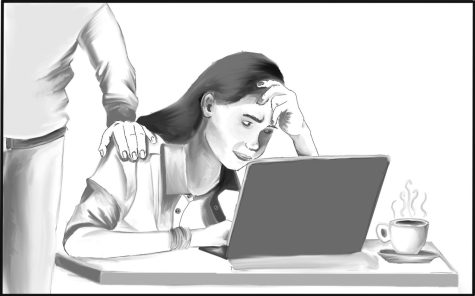
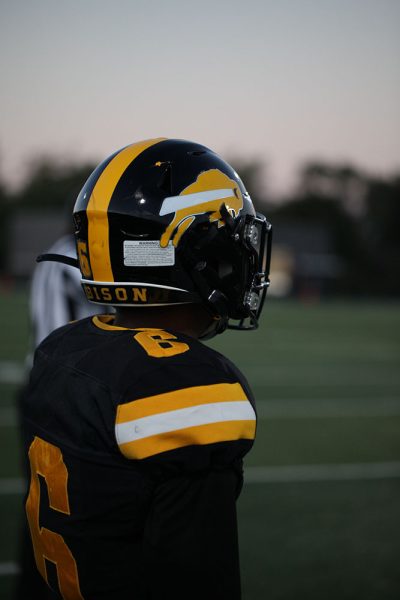
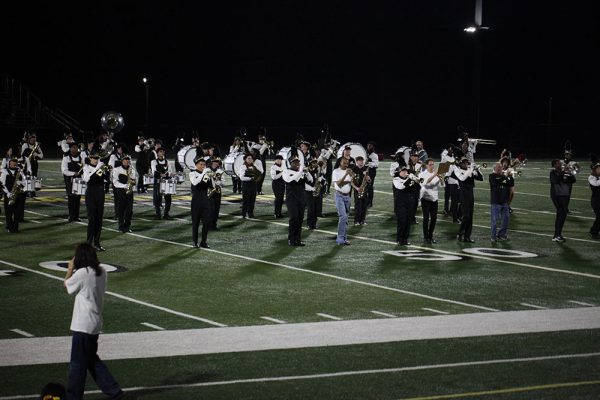

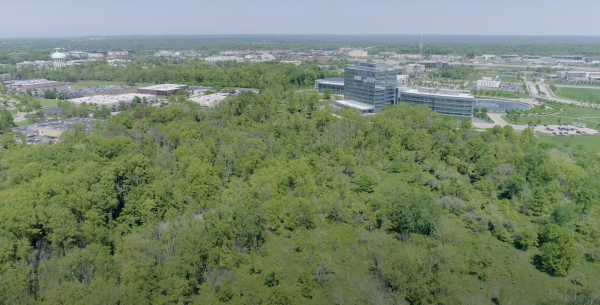
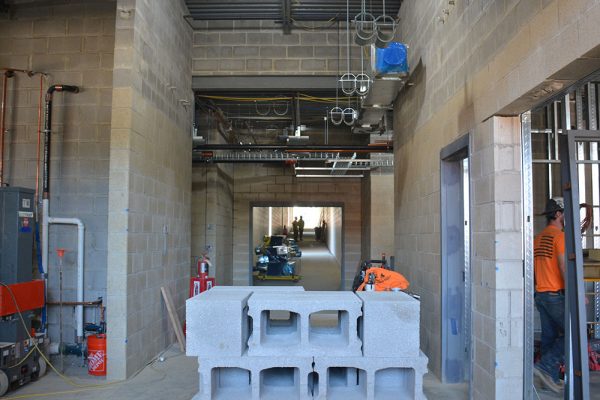
Tassaduq Hussain Sheikh • Sep 22, 2019 at 6:22 AM
The most likely solution might be to make it a neutral region with sustaining its Muslim stance between the two nuclear powers. The only disadvantage is the most likely hood infiltration, invasion and occupation by a vector who has a bright past history of such behaviors.